-

The acceptance of the feasibility of the BRICS Development Bank at the recently concluded Fifth BRICS Summit at Durban has sent a shivering effect on a certain section who criticise the very idea.
-

War is not a civilized or dignified way to get hold of rights. Because in wars, national development is arrested, education, economy and technology are left backwards, leaders become cruel and unjust, the military is too expensive, and humans become victims.
-

This World Water Day (22 March 2013) calls for cooperation on transboundary rivers. With 276 transboundary river basins worldwide, it makes sense for countries in the Indian subcontinent and China to consider them seriously. While international institutions are trying to define a working definition of 'water security', will India be able to secure unhindered access to water for living beings across the McMahon line—the source of all perennial rivers flowing through India?
-
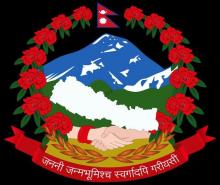
The well-being of a nation depends much on its ability to adapt to changes. Each change brings in new possibilities and also critical risks. Nepal as a nation has witnessed many changes as early as 1950.
-
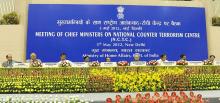
State governments ruled by non-Congress parties opposed the formation of the National Counter Terrorism Centre (NCTC) due to the apprehension of dominant authority, and unilateral action of the centre over states using the agency would challenge their authority. Consequently, the Indian Government has planned to draft a more transparent and accountable proposal for NCTC to pacify the opposition, that the NCTC be kept out of the Intelligence Bureau (IB) and states be given a significant role in counterterrorism activities.
-
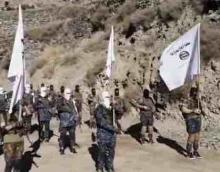
Pakistan has been struggling to cope with a multitude of predicaments ranging from political instability to sectarian intolerance, which often prompts the international community to tag this South Asian nation as a failing state. The homegrown neo-Talibanism in the tribal areas adjoining Afghanistan and Jihadi proxies in areas bordering India continues to pose myriad security challenges for Pakistan’s internal security as well as physical integrity.
-
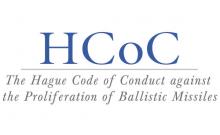
The Hague Code of Conduct against Ballistic Missile Proliferation (HCoC) has completed ten years of its existence. This code was formally enacted on November 25, 2002, at a conference hosted by the Netherlands at The Hague. This was also known as the International Code of Conduct (ICOC). This code is voluntary and not binding in nature, and the subscribing states are expected to furnish annual declarations on missile policy and the pre-launch notifications (PLNs) of missile test launches.
-
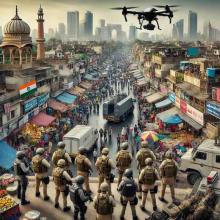
It is significant to look into the background of the accused persons involved in terror attacks and specific events at national and international levels.
-
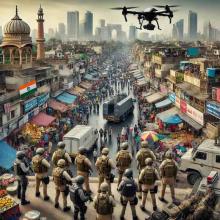
The arrest of the suspects of terror activities in Bangalore, Nanded, and Hyderabad and the low-intensity bomb explosions in Pune on 1 August 2012 are pointing fingers at the involvement of some Indian Muslims. Earlier also, many of the terrorist attacks against cities in India had been conceptualized and planned by Indian Muslims who sought to attack their own country. Despite these events, India has not taken any comprehensive community engagement programme (CEP) to engage the Muslim community to check radicalization, which is a solid tool for controlling homegrown terrorism.
-
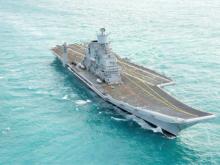
Two Russian built warships with the same name i.e. Admiral Gorshkov have been making news in the last few weeks. The first vessel is an aircraft carrier which was sold to India in 2004 and is rechristened as INS Vikramaditya. It has been plagued in controversy due to costs and time overruns. The pre-delivery trials of the ship were unsuccessful and according to reports, the vessel will have to wait till the White Sea ice melts during the summer of 2013 to complete the trials.
Paxton ported to drupal by DropThemes.in